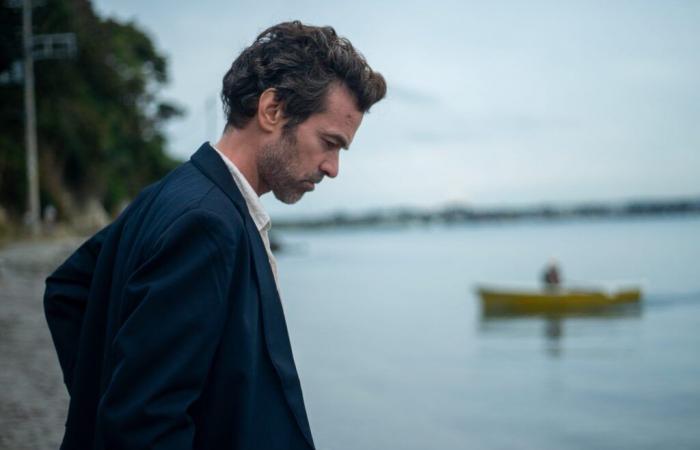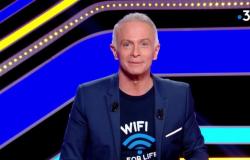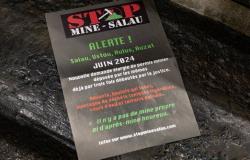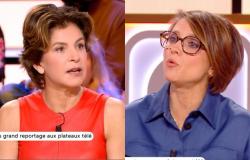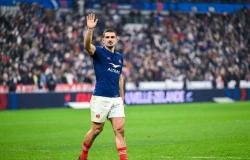He was left with a son undergoing a genetic mutation. In “The Animal Kingdom” by Thomas Cailley, Romain Duris went on a road trip with Paul Kircher and plunged into a forest populated by very particular living beings. Half-human, half-curious beasts. But the love between father and son is stronger than ever in this beautiful film crowned with the prestigious Louis Delluc Prize (2023). In “A Missing Part” by Guillaume Sénez, the actor once again plays a father who is desperately looking for his daughter. Not just anywhere: in Tokyo. Day and night. Ex-partner of a Japanese woman, he had a daughter and since the couple's separation, he has been denied any rights to visit his child because Japanese law favors only one parent. He had to leave his job as a chef to work for a taxi company in the hope that his daughter would hail him on a street corner. She will get into the back of his vehicle and in his rearview mirror, he will see her face. A dream that has become a chimera as the days go by and nothing happens. And then… For this composition role, Romain Duris, a fan of Japanese culture, learned the language, most of his lines are in Japanese. It is astonishing in its veracity.
SHE. What moved you when reading the script?
ROMAIN DURIS. The character of the father moved me. He is a man in a bind. He hasn't seen his daughter for almost ten years. He is broken but at the same time he survives, he is about to return to France. Suddenly, the magic of life happens and he sees his daughter again. I thought a lot about Lodge Kerrigan's film “Keane,” about a father in deep pain after his daughter disappears.
SHE. The film is an opportunity to learn that in Japan, joint custody is very complicated. We remember the hunger strike started by Vincent Fichot during the Tokyo Olympic Games in 2021…
R.D. With the director Guillaume Sénez, we met him. It was very hard… Although it was important at first to speak with these fathers who are experiencing a tragedy, to immerse myself in a concrete reality, I then had to move away from it to allow myself to play. We can say to ourselves: “this affects me too much, I can’t play that”. The distance seemed necessary to me. The film is not intended to stigmatize Japan. Other countries use this practice. I understand that a new law passed there last May softens the edges a little. It's moving in the right direction.
SHE. You had already played in front of Guillaume Senez's camera in “Nos Batailles”. A desire to repeat this experience?
R.D. Yes. Guillaume is a very sensitive person and he has the art of giving space to his actors. He uses a method based on improvisation. He never gives us the entire dialogue but scene descriptions. Each of us with our imagination invents texts. And little by little, take after take, we tighten it up, we remove the fat, we rely on key words until we arrive at a scene very close to the dialogue version of the screenplay. I love it.
SHE. The exercise must have been dangerous because you speak in Japanese for a good part of the film…
R.D. I worked a lot on the phonetics of each line of dialogue. I know Guillaume loves it when things move. In the evening, I learned terms from Japanese people and I put them back the next day. Like a game. I prepared four months before the start of filming. My foundation was solid. The Japanese coach stayed next to Guillaume and validated everything.
SHE. Have you ever been to Japan?
R.D. Yes, I love this country. And for a very long time. I don't know the origin. Certainly not through manga… When I was younger, I wore Asian cut clothes that I bought in the 13e with big sneakers, I had dreadlocks. A great look! I am fascinated by Japanese calligraphy. At 22, I even took classes that made me feel really good. The posture is beautiful, it reminds me of yoga. And we breathe. The ink that leaves a trace after passing the brush brings me joy. I love the delicacy of the Japanese, their refinement. And I'm a fan of their cinema.
SHE. Do you cook Japanese?
R.D. Yes… I make French-style sushi! I learned a little there. The most complicated thing is cooking the rice. It must not fall apart, it must remain compact. A good fish. And know how to cut it. Japanese knives… I brought back lots of them.
SHE. Does being a father in real life help to build a father character in the cinema?
R.D. It’s true, I have often been a father in the cinema! Even before being one in life. Does this help? Probably because a lot of things resonate with me. In any case, I don't fear experiencing this love on screen. I was lucky to have wonderful cinema children. Mei Cerne-Masuki who plays my daughter in “A Missing Part”, her first time on screen amazed me, her modesty, her shyness and suddenly, like a flower she bloomed. She only had two weeks of filming but she's rocking! Paul Kircher in “The Animal Kingdom”, a real joy, this boy. Totally surprising. Seeing the children we had in the cinema again is scary. The other day, I saw the little girl who played my daughter in “Our Battles” again, she grew up and at the same time, I rediscovered her part of childhood. It was beautiful.
SHE. And you, what son were you?
R.D. I am a son who grew up in opposition. I was very rebellious. I was doing the opposite of what I was told to do. You had to have good hair, I had bad hair. You had to be well dressed, I dressed poorly with paint on my clothes. Don't listen to the music too loudly in your headphones, I put it on loud. When I went to concerts, I stood as close to the speakers as possible. I gave my parents a hard time but without drama. I was gentle in the extreme.
SHE. You toured seven times with Klapisch. Is trust between a director and an actor important to you?
R.D. When I am reminded, I take it as a gift. I tell myself that somewhere, I must have done my job well. And then, we create a friendship. Klapisch, Honoré, Gatlif… I find it enriching for the characters I play.
SHE. Patrice Chéreau extended his hand to you. What would you say to him today?
R.D. Let's work together again! Let's do some theater! Patrice was so precious on a human level. And in work… For me, he was a bank of knowledge. The rehearsals with him were almost more overwhelming than the performances.
SHE. You have just entered your fifties…
R.D. It seems! Google tells me! As an actor, I have always sought experience. What freaked me out at 20 was being too light, too frail. I said to myself: “It’s great that I’m old, that I’ve gone through things that can nourish the moments of emptiness in my characters.” Today, I'm not going to complain.
“A missing part” by Guillaume Senez, with Romain Duris, Judith Chemla, Mei Cirne-Masuki (1h38). In theaters November 13.

